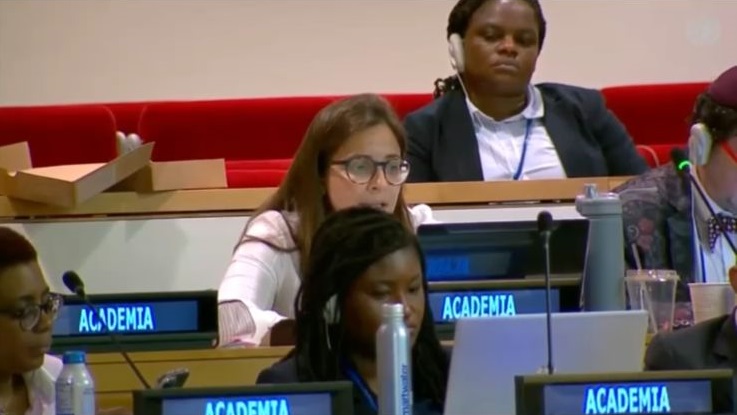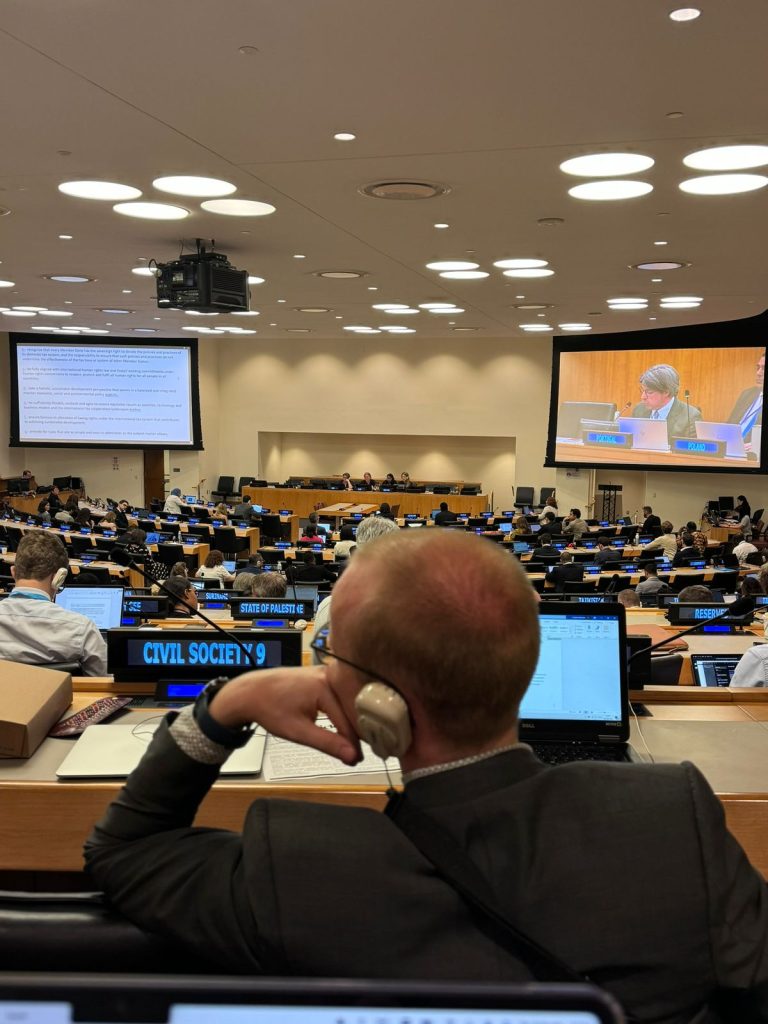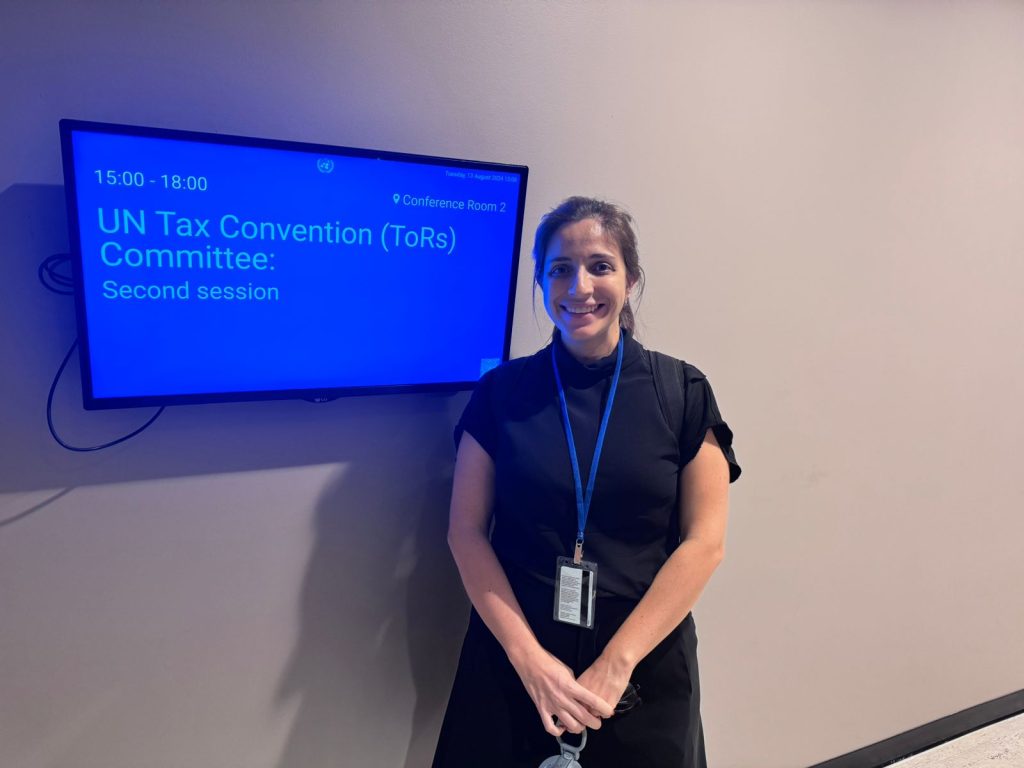NOVA Tax Lab UN Framework Convention On Internacional Tax Cooperation Weekly Report
10 August 2024
The second week of the negotiations on the Terms of Reference – ToRs for a United Nations Framework Convention on International Tax Cooperation (UN FCITC), began on Monday, the 5th of August, aiming for each delegation to express their positions and suggestions regarding each paragraph of the ToRs.
It’s important to note that the Committee’s secretariat has given delegations the opportunity to submit suggestions for the ToR text by Tuesday afternoon. Some delegations submitted their versions jointly, for example, the African Group, the EU countries, and Brazil, Chile and Colombia.
From Monday to Thursday negotiations continued, with moments of greater divergence and others where convergent positions prevailed. Perhaps the most heated discussion of the week involved the wording of the preamble, up to the substantive section dealing with the objectives, principles and commitments. Although there was a general consensus for the inclusion of several other UN resolutions in the preamble, such as A/RES/70/1 (2030 Agenda), A/RES/217(III) (Universal Declaration of Human Rights) and A/RES/78/134 (trade and development) – forwarded by the India’s representative, conversations regarding the objectives and principles were not straightforward.
The EU block quickly emerged reiterating its position that the upcoming framework convention would not establish an international tax system, but rather contribute to the existing one – a position supported by the USA, Canada and Japan. On the other corner, the African Group pushed for an even stronger language, reinforcing its position that the framework convention would, in fact, create a new international tax system that would serve the needs of all – supported by India, Russia, Chile and others. On this regard, Colombia forwarded a compromise between the two, stating that it would be irrelevant if the wording was to establish or not, the focus should be to “ensure” an effective international tax cooperation. At the same time, delegations debated the inclusion of ‘the tax sovereignty’ in the objectives, with the support from the delegations of the UAE, Saudi Arabia, Korea and China, against the delegations’ position from the African Group, India, Brazil and Morocco.
As for the discussion around principles, the award for the most contentious topic discussion was attributed to Human Rights. Nigeria, on behalf of the African Group, expressed that, as a result of the proposed changes in the preamble, namely the insertion of the Resolution referencing Human Rights, there would no longer be a need for explicit mention to these in the principles section – a position backed by India, Saudi Arabia, Iran and Russia. Others, encompassing the “Global North”, such as Mexico, Mauritius, Chile, Colombia, Argentina, Honduras, Costa Rica, Brazil and Academia Stakeholders, expressed the fundamental need to maintain an explicit reference to Human Rights in the principles, due to its significant and fundamental importance. Ghana responded, on behalf of the African Group, and later also India, that the issue was not related to the respect of Human Rights, but that the placement of its reference was not appropriate within the principles section. As discussions kept going, the argument suffered from Zambia’s sudden concern that Human Rights could somehow impede the upcoming Committee’s progress in negotiating the Framework Convention.
About the early protocols, despite the initial opposition of the “Global North” to its treatment in the ToRs and a clear preference for negotiations to take place after finalising the negotiations on the Framework Convention, the delegations apparently reached an agreement, deciding to advance on the negotiation of the framework convention and two protocols simultaneously, given the urgency assigned by developing countries. However, the topics to be addressed in the early protocols are still open, given the stark divergence between member states on the most pressing tax issues.
As for the paragraph on capacity building, Singapore’s suggestion on including technical assistance in addition to funding gathered major support. Building on this notion, Colombia suggested to broaden the scope of capacity building to encompass means of implementation as well. On this regard, Mariana Beraldo, on behalf of NOVA Tax Research Lab, intervened denoting the major importance of tax education whenever discussing capacity building. The researcher reminded those present that tax education not only favours tax compliance, but also ensures fairness, responsibility, accountability and even contributes to raising taxpayers’ awareness of their rights, thus mitigating citizen’s overall feeling that taxation is just another one of “life’s” obligations. Mariana expressed that better tax education would thus contribute to democracy and most likely even prevent the discussion of some of today’s topics in the future.
With regard to the discussions concerning the constitution of the upcoming framework negotiating Committee, Costa Rica expressed that it should carry out its work with contributions from the International Organizations and Civil Societies. Sharing a similar view, Canada proposed a new wording that would include “a list of representatives of other relevant non-governmental organizations, civil societies organizations, academic institutions and private sector organizations, including those with expertise in the field of taxation”. Similarly, Portugal’s representative noted that “the workload we are assigning on the upcoming negotiating Committee, contemplating work-groups will be a necessity” and that the ToRs would benefit from clarifying “how we will engage with Civil Societies, Academia, International Organizations and Stakeholders”, thus denoting a clear intention to keep the negotiation process inclusive and transparent to society. The week’s discussions ended, at least in the form of open meetings, with an analysis of whether or not to maintain paragraph 20, that states that A Framework Convention ‘should take into consideration the work of other relevant forums’, and whether this provision should be relocated next to the principles of paragraph 9 of the ToR.
On Thursday afternoon, The Chair of Committee decided to close the open meetings, arguing that the delegations needed time to manage the proposed amendments and seek a ‘common ground’. Bilateral negotiations were encouraged. Thus, we note that many relevant topics remain open, and there are clearly strongly divergent positions. In this context, we can only wait for the return of the next week’s meetings to find out whether the Member States managed to find consensus and will maintain essential elements in the text of the ToRs to achieve an effective international tax cooperation.



